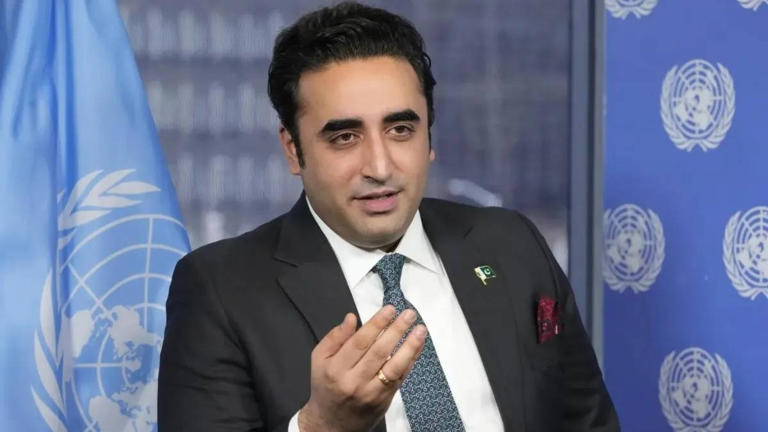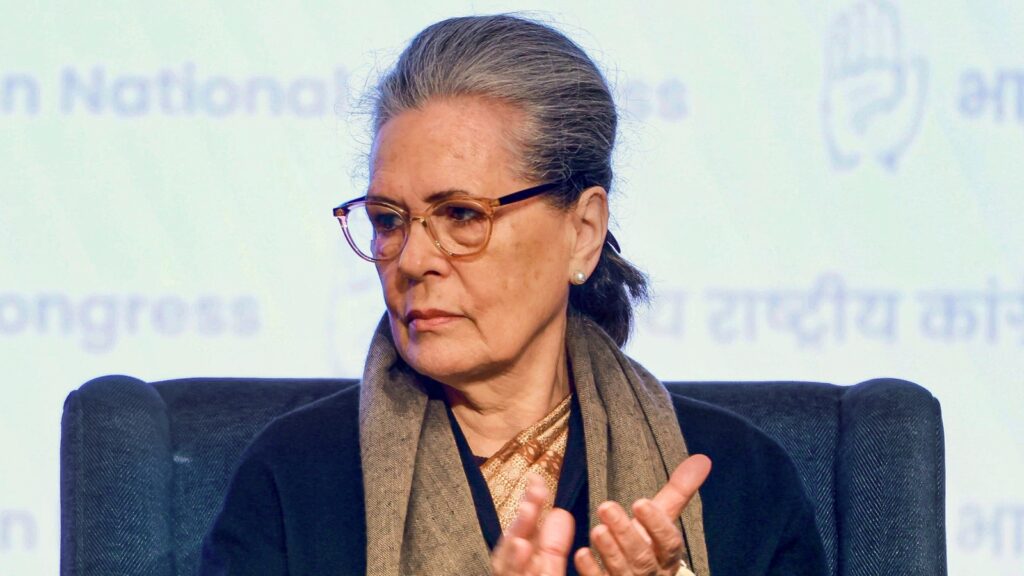Bhutto Denies Azhar’s Presence, Sparks India’s Fury Over Terror Claims
On July 5, 2025, Bilawal Bhutto Zardari, Chairman of the Pakistan People’s Party (PPP) and former Foreign Minister, made international headlines during an interview with Al Jazeera by claiming that Pakistan has no knowledge of terrorist Masood Azhar’s current whereabouts. Bhutto even suggested that Azhar may be in Afghanistan, citing the terrorist’s long-standing ties with the Afghan jihad.
Bilawal Bhutto tells Shrinivasan that Pakistan doesn't know where UN-listed terrorist Masood Azhar is.
— Amana Begam Ansari (@Amana_Ansari) July 5, 2025
When a country pleads ignorance about the whereabouts of globally designated terrorists, it signals more than weakness, it implicates the state.
Little surprise that Pakistan… pic.twitter.com/2OcmMrq90a
Azhar, the founder of Jaish-e-Mohammed (JeM) and a UN-designated global terrorist, is accused of masterminding numerous deadly attacks on Indian soil, including the 2001 Indian Parliament attack, the 26/11 Mumbai attacks, the 2016 Pathankot attack, and the 2019 Pulwama suicide bombing, which killed 40 CRPF jawans. Despite his legacy of terror, Bhutto said, “We have been unable to arrest him or identify him,” placing the burden on India to provide actionable evidence.
Bhutto added, “If and when the Indian government shares information with us that he is on Pakistani soil, we would be more than happy to arrest him.” The statement has triggered a diplomatic storm in India, especially since it comes just weeks after Operation Sindoor, India’s retaliatory strike on terror camps in Pakistan following the Pahalgam terror attack on April 22, which killed 26 civilians.
Pakistan Hides Azhar After Sindoor Strikes Cripple Terror Bases
India’s Operation Sindoor on May 7, 2025, targeted key terror infrastructure in Pakistan and Pakistan-occupied Kashmir, including JeM’s base in Bahawalpur and Lashkar-e-Taiba’s headquarters in Muridke. The surgical strikes came in retaliation to the Pahalgam attack and reportedly resulted in the death of 10 of Masood Azhar’s family members and four of his close aides.
In this context, Bhutto’s suggestion that Azhar may not even be in Pakistan is being seen as Pakistan’s continued denial and refusal to take responsibility for harboring terrorists. Indian media outlets like India Today and Hindustan Times report that the strikes severely weakened JeM’s command structure, and Azhar himself may have gone underground—or across the border into Afghanistan.
Indian officials argue that this pattern of denial mirrors Pakistan’s historical reluctance to acknowledge the presence of terrorists on its soil—be it Osama bin Laden in Abbottabad or Hafiz Saeed, the mastermind of the Mumbai attacks. Bhutto has also claimed Saeed is currently in custody, although Indian intelligence sources remain skeptical.
Indian Media Rips Pakistan: “Shameless” and “Predictable”
Bhutto’s comments have drawn strong criticism from Indian media and security experts. Outlets such as NDTV, Financial Express, and The India Daily termed the remarks “evasive” and “shameless.” Analysts say Bhutto’s stance fits a long-standing Pakistani strategy of plausible deniability, shifting the burden of proof to India while dodging international pressure.
On social media, the reaction was swift. Prominent voices, including journalist Sreenivasan Jain, called the admission a “bombshell,” pointing out the irony in Bhutto’s conditional offer to arrest Azhar only if India provides credible location proof—despite years of intelligence linking Azhar to Pakistan’s Bahawalpur.
The geopolitical implications of this statement are significant. By naming Afghanistan, Pakistan risks straining relations with Kabul, while also deflecting global scrutiny from its own alleged inaction. It also casts doubt over Pakistan’s seriousness in fulfilling its obligations under UN Security Council Resolution 1267, under which Azhar is listed.
As India considers further diplomatic action, the world watches closely to see whether Pakistan will cooperate or continue its familiar script of denials and deflections.





















